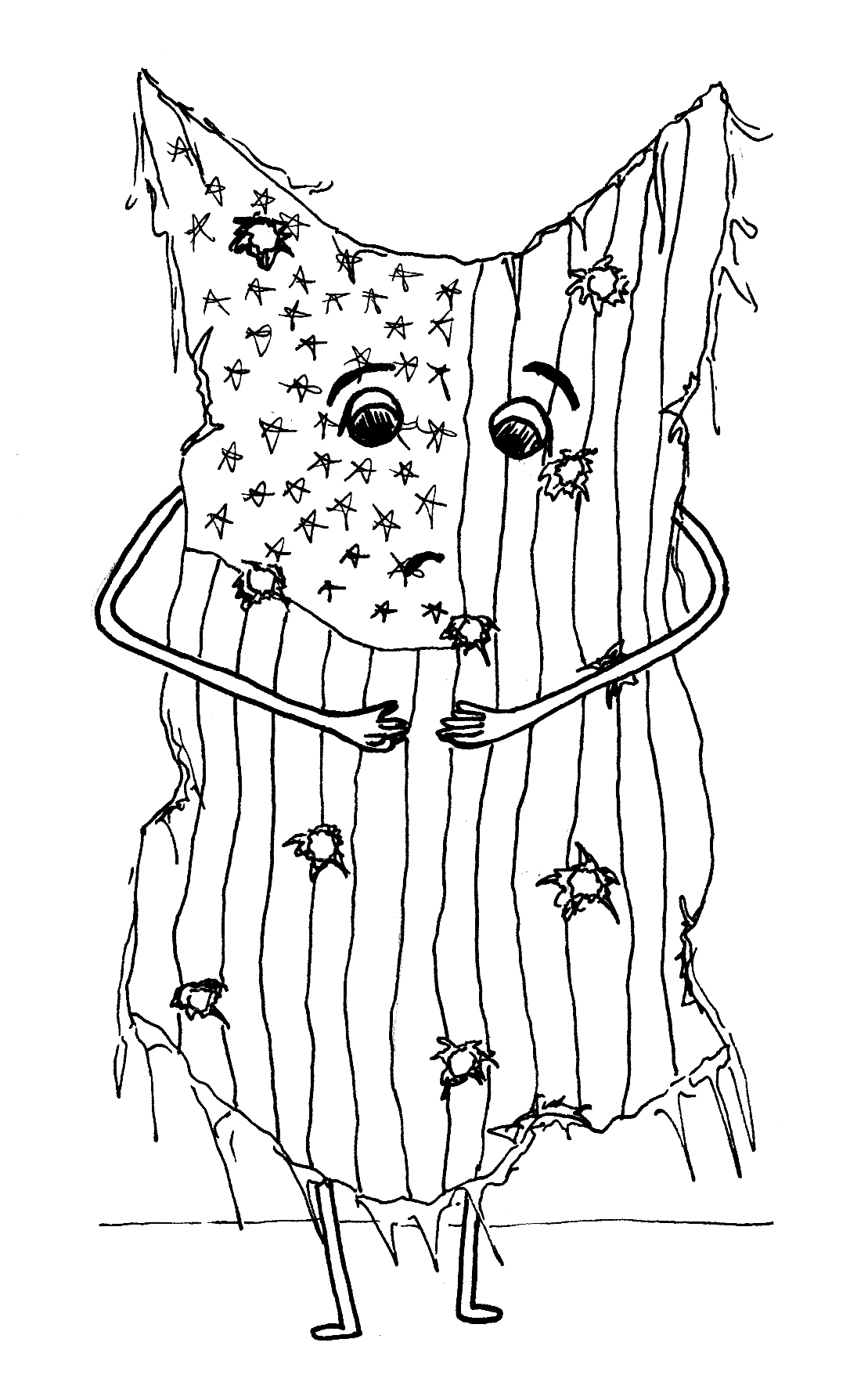White supremacy fuels American gun violence
February 23, 2018
 This
piece represents the opinion of the author
.
This
piece represents the opinion of the author
.
I’ve already written an article about gun violence this year, yet I honestly don’t remember which mass shooting it was in response to. If my column is true to its name, the politics of mass shootings should pop up with saddening frequency, for every week it seems the topic is relevant. Accounts and images of last week’s tragedy in Florida burn fresh enough in my mind that it would be disingenuous to write about anything else, but the politics of mass shootings are dynamic enough that I can still write without fear of sounding redundant. Based off reactions to the Parkland shooting, it seems as if the gun control movement has now gained traction and is unlikely to falter with the typical haste. This is unequivocally a step in the right direction and I lend the push my full support. However, truly curbing American violence will require more than just adapting gun laws—it will require some serious self-reflection on this country and our place in it.
Much of the media is quick to diagnose mental illness as an explanation for indiscriminate violence, especially when the perpetrator is white. Although this is undoubtedly a factor in many of these shootings, we cannot treat it as a motive. Mental illness is not a reasoning for violence, even if it may be a catalyst. When a shooter is a person of color, of course, “motives” are quick to be identified and pretenses of insanity abandoned. In a country where non-white culture is scrutinized and demonized, any violence that emerges from such culture is immediately turned around to justify pre-existing bigotry. A Muslim shooter is not mentally ill; they are a terrorist operating under the banner of Islam. A black shooter is not a disturbed child; they are a savage thug radicalized in a culture that glorifies violence. A Latinx shooter is not an enigma; after all, we have been taught to fear such dangerous immigrants. This is what we are told.
If those crimes are so easily simplified, why do we then find it so hard to explain white violence? Why is the justification of mental illness reserved to the parameters of white skin?
We know there’s more to the equation, but our country has never been keen on the self-reflection needed to answer these questions. Recognizing the deep flaws in America is an unspoken taboo across many communities, just as it is in Washington. The incessant whine for reaffirmation of American excellence not only drowns out dissent, but actively works to silence it. Because of this pressure, we’ve been told to end every criticism of American culture with a “but.” “But America is still the greatest country in the world!” the politicians say, worried they’ve gone too far in a critique. This restraint is not shown in critiques of minority cultures, of course, they’re fair game for unbridled hostility. Why the disparity?
Perhaps it’s because “American Culture” is still synonymous with “white American culture.” We know whiteness to be an insulator against criticism and scrutiny. Nikolas Cruz embodies this privilege. As Shaun King writes in The Intercept, “An apparent white supremacist can go through life making threats, talking about weapons, harassing people, warning that he would be a school shooter, have people call the FBI on him and yet never get serious scrutiny from just about anyone. There were just no consequences.”
Violence affiliated with white-supremacist and white-nationalist groups has skyrocketed over the past few years, yet a large contingent of the American political landscape remains locked in a desperate attempt to funnel the anger and hysteria towards immigrant populations and Muslims. If we admit that “patriotic” white Americans can be a threat to national security, we smash through both the facade of American excellence and the underlying belief that White American culture is the most proper, most wholesome culture around. To many, such an admission might seem incomprehensible—justifications for institutionalized racism and household bigotry alike often stem from this sense of white American cultural superiority and are deeply ingrained in the threadwork of American life.
So, even if access to guns becomes severely restricted, the underlying violence that our country is built on will persist—violence that has nothing to do with mental illness. White supremacy will still pose a physical threat to the safety of Americans and misplaced assertions of American excellence will still pose a threat to people across the world. Gun control is just the first step in a peacemaking process that will require uncomfortable conversations, confrontations and personal reflection. We have the courage to take on the NRA—but do we have the courage to take on ourselves?
Comments
Before submitting a comment, please review our comment policy. Some key points from the policy:
- No hate speech, profanity, disrespectful or threatening comments.
- No personal attacks on reporters.
- Comments must be under 200 words.
- You are strongly encouraged to use a real name or identifier ("Class of '92").
- Any comments made with an email address that does not belong to you will get removed.


I’m pretty sure the offender in Florida and Sandy Hook were ethnic minorities, not white anglos by any stretch. Chai Vang at Virginia Tech, Kleibold and Harris in Columbine, all ethnic non anglo minorities. Just sayin, this racial bias is tearing our country apart and assigning white supremacy to ethnic minorities that are killers ,